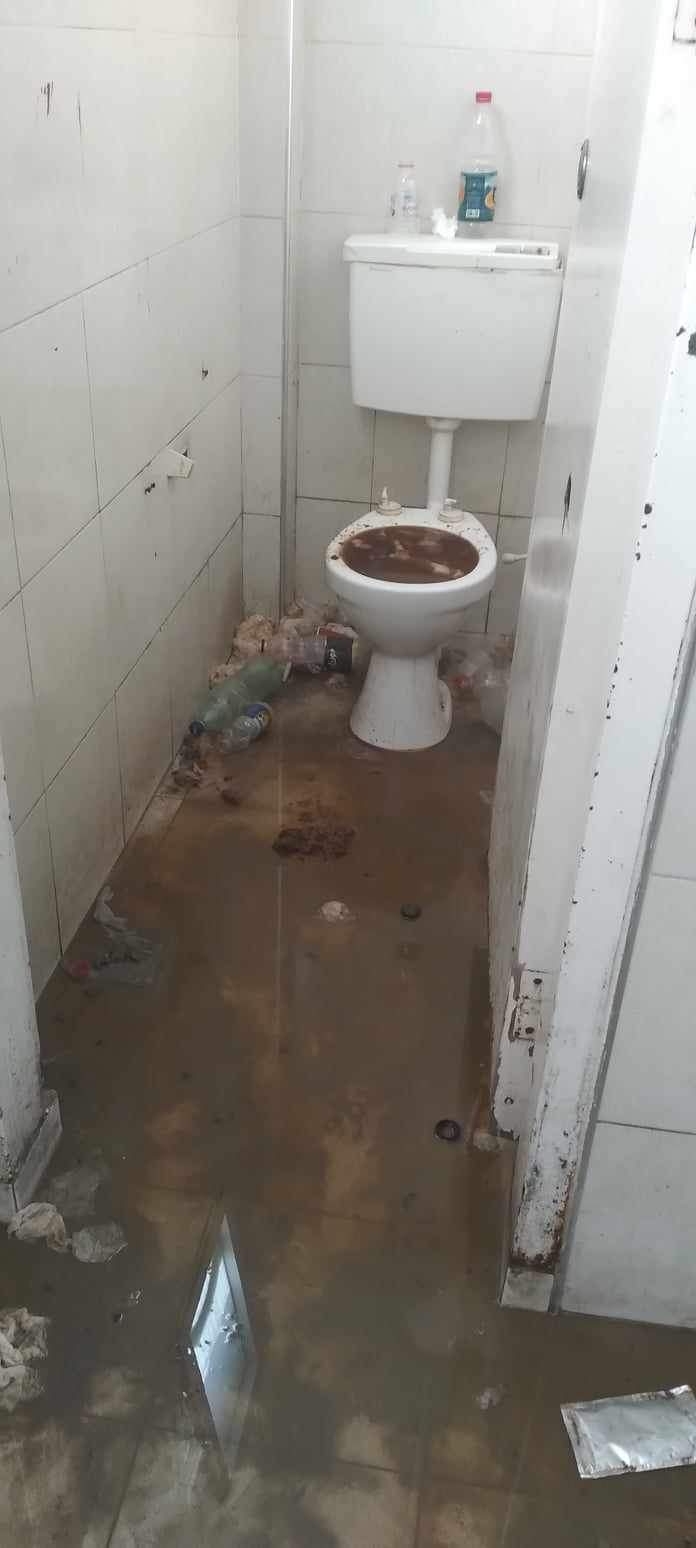In the midst of war, some images tell the story louder than a thousand reports. This is one of them. Captured in a bathroom of a school-turned-shelter in Gaza, this photograph doesn’t just show a toilet—it shows what remains of human dignity when everything else is stripped away.
The floor is flooded with dirty water. Plastic bottles float aimlessly among soaked toilet paper and unidentifiable waste.
The toilet bowl is a pool of thick, brown filth. The stench, though not captured in pixels, almost seeps through the screen.
This is not a forgotten facility in a distant past—it is a current, daily reality for hundreds, if not thousands, of displaced Palestinians trying to survive in a school now called “home.”
space
This space, designed for quick student visits between classes, now bears the burden of serving entire families.
Women, children, the elderly—they all must navigate this filthy, disease-breeding space, because they have nowhere else to go.
No functioning plumbing. No consistent cleaning. No privacy. No dignity.
Mothers wait in long lines, holding toddlers, trying to keep them from stepping into the filth. Teenage girls, already stripped of their privacy, find themselves forced to share a facility with dozens of strangers.
For the elderly, some of whom can barely walk, this bathroom becomes a daily horror. For the children, it becomes a source of illness. For all, it becomes a symbol of the collapsing boundary between survival and dehumanization.
When we speak of “war casualties,” we often think of bombs and bullets. But what about this? What about the silent, slow death of hygiene, comfort, and human dignity? What about the mental toll of using such a space every day, of feeling less than human with every step into that flooded room?
Humanitarian aid
Humanitarian aid is not just about food drops and tents. It is about toilets that flush. Water that runs. Soap. Trash bags. Cleaners. These are not luxuries—they are necessities. And yet, in Gaza, they are dreams.
This photo, horrible as it is, should be shared. Not to shock for the sake of shock, but to awaken.
Because behind every dirty corner of that room is a face, a story, a beating heart that deserves more. It deserves safety. It deserves care. It deserves respect.
And so, we must ask ourselves—not out of guilt, but out of shared humanity—how long must people live like this before the world responds not with pity, but with action?
We are sorry for this Photo, But in Gaza thats how they live




11 responses to ““A Toilet in Gaza: The Image That Speaks Louder Than Any Headline””
[…] “A Toilet in Gaza: The Image That Speaks Louder Than Any Headline” […]
Awesome https://is.gd/N1ikS2
Very good https://is.gd/N1ikS2
Very good https://is.gd/N1ikS2
Good https://is.gd/N1ikS2
Awesome https://is.gd/N1ikS2
Very good https://is.gd/N1ikS2
Awesome https://is.gd/N1ikS2
Good https://is.gd/N1ikS2
Good https://is.gd/N1ikS2
Very good https://is.gd/N1ikS2